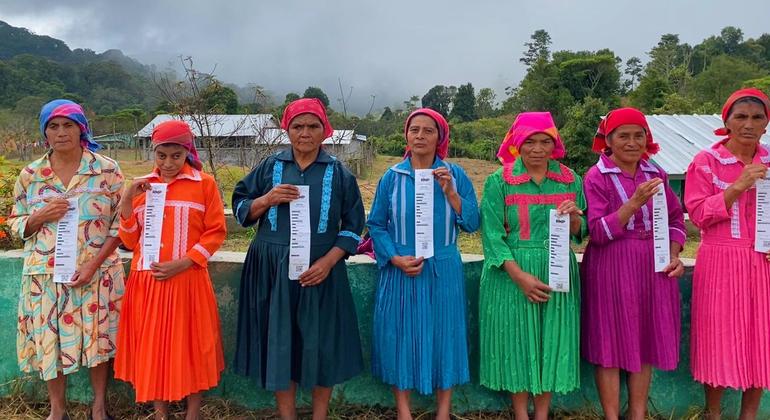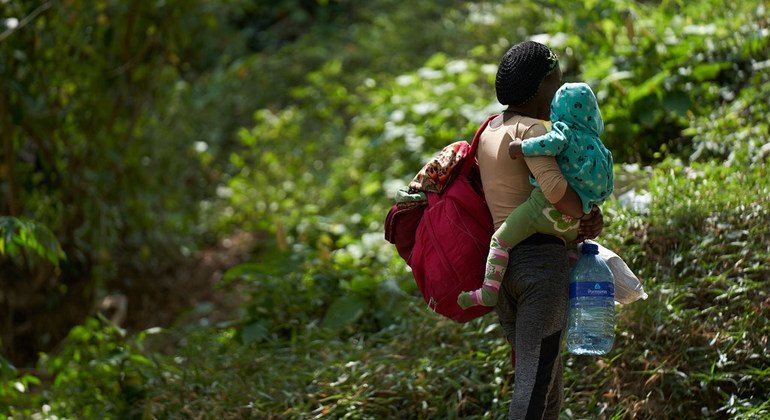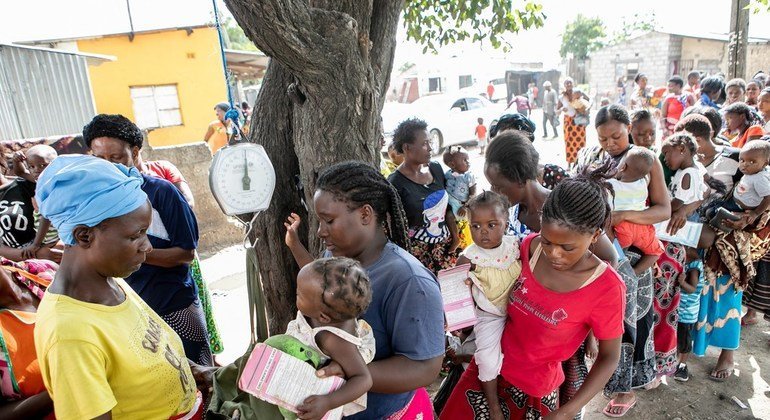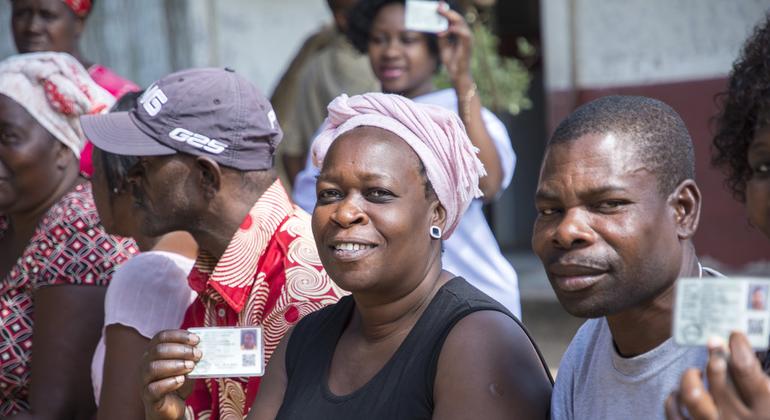UNDP/RNP The UN Legal Identity project in Honduras has a special focus on Indigenous Peoples, LGBTQI+, minority population and persons with disabilities.
Percy Santos, a visually impaired college student in Honduras, recently received his digital ID card from the government. “The new ID is designed perfectly for people like me. This is a personal fulfilment. I feel better identified,” he says.
Mr. Santos is one of the 5.4 million people enrolled in the new population database in Honduras, set up with help from the UN Legal Identity project in the country, which has a special focus on Indigenous peoples, LGBTQI+, minorities and persons with disabilities. Thanks to the digital card, he now has easy access to social benefits.

UNDP/RNP Around 5.4 million people are now enrolled in the new population database in Honduras.
As well as making life easier for people like Mr. Santos, the new system has also helped the Honduran authorities to create a more robust electoral database, improving the voting system significantly in the 2021 elections, and helping to reduce distrust in the electoral system.
The chances of succeeding in life without a legal identity are very low. It’s much harder to get a job in the formal economy, and the likelihood of benefitting from social protection or basic health care systems during pandemics like COVID-19, or during times of conflict or climate emergencies, will be negligible. Absence of legal identity is likely to impact insurance, pension, or even basic utility services like water, telephone, and gas connection.
The Honduras project is just one example of the ways in which the UN is helping countries in their attempts to establish national population registers, national ID schemes, or digital ID programs.

© UNICEF/William Urdaneta/año A young mother from Sierra Leone and her baby, displaced by conflict (file)
Sierra Leone: identifying those displaced by conflict
In Sierra Leone, years of armed conflict, and the widespread human rights abuses associated with it, led to significant levels of internal displacement, and statelessness.
The UN Development Programme (UNDP) and partners are helping the authorities to integrate the displaced, stateless population, so that people who do not have legal documents can acquire a National Identification Number (NIN).
This means that they can get a driver’s licence, apply for formal employment and, most importantly, have a legal identity. For the government, it means keeping track of revenues generated from taxes, reduced corruption, proper checks and balances, and increased security.
Thanks to these efforts, Sierra Leone now has a digital record of six million people who were previously undocumented.

© UNICEF/Karin Schermbrucker Women weigh their babies at a clinic in Zambia (file)
Zambia: Major increase in registered births
The UN has been a key partner in making registration more accessible in Zambia, helping the government to install an integrated and digital national registration system that covers Zambians from birth to death, in different areas of the country. The same legal identity works to vaccinate, as well as enrol children in school.
As a result, Zambia has seen an increased registration of birth from 14.3 percent to 84 percent as of 2022.
“In addition to provision of legal identity from birth to death and its contribution to the maintenance of internal security, the integrated national registration system shall provide reliable and timely vital statistics for planning purposes and targeted provision of social services to eligible population groups,” remarks Jacob Jack Mwiimbu, Minister of Home Affairs and Internal Security of Zambia.

Rochan Kadariya/UNDP Citizens in Mozambique with their identity cards
Mozambique: A ‘ground-breaking initiative’
Mozambique, which has low levels of civil registration – 12.1 per cent of deaths and 49 per cent of births are registered – is one of the United Nations Legal Identity Agenda pilot countries.
As part of the project to improve the registration and national identity database, the UN country team developed a plan to improve these figures, and create systems for civil registration, vital statistics, and identity management.
The project has been praised by the most senior UN official in Mozambique, Myrta Kaulard. “The Legal Identity Agenda is a ground-breaking initiative, to benefit from migration and guarantee the rights for those who are in the country,” says Ms. Kaulard.
The Legal Identity Agenda Task Force
Sustainable Development Goal 16 is to “Promote peaceful and inclusive societies for sustainable development, provide access to justice for all and build effective, accountable and inclusive institutions at all levels.” Under that goal, Target 16.9 specifies that one of the ways to do that is to “by 2030, provide legal identity for all, including birth registration.”
Around 237 million children under the age of five worldwide are currently without a birth certificate. The World Bank Group (WBG) estimates that around one billion individuals do not possess proof of legal identity, either paper-based or digital.
Having a legal identity is fundamental to human rights and UNDP is supporting civil registration and national ID systems in more than 25 countries, including Vanuatu, Bangladesh, Palestine, Cameroon and Kenya.
By 2025, the United Nations Legal Identity Agenda Task Force, co-chaired by the UN Department of Economic and Social Affairs (DESA), UNDP and the UN childrens’ agency (UNICEF), aims to assist UN Member States in enabling more than 300 million people to acquire a legal identity.

